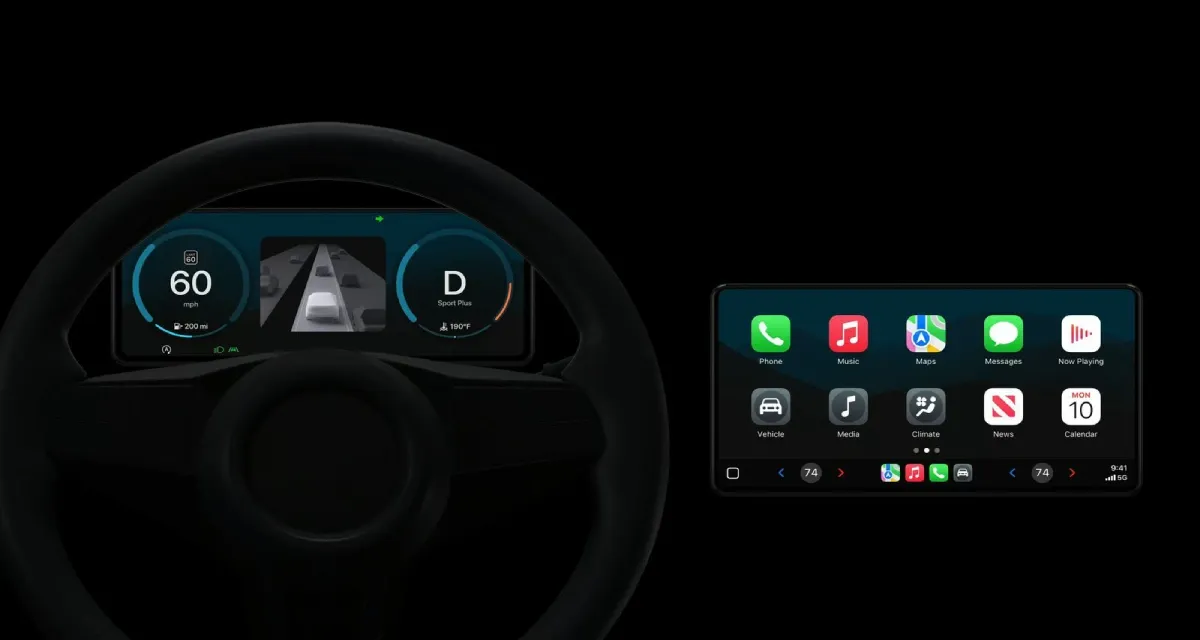

At Apple's recent Worldwide Developers Conference (WWDC) 2024, among the buzz surrounding iOS 18 and advances in artificial intelligence, one standout was the unveiling of the next-generation Apple CarPlay. This new iteration promises to revolutionize how we interact with car technology, integrating seamlessly with the vehicle's digital displays and enhancing the driving experience.
Building on previous announcements, Apple has confirmed that CarPlay will now fully integrate into the digital driver's display of compatible vehicles. This means your car’s dashboard screen will not only mirror your iPhone's interface but also offer customizable features tailored to your preferences. From changing font styles and colors to displaying essential information like fuel levels, speed, and even navigation instructions directly on the instrument cluster, the integration aims to provide a cohesive user experience akin to using your iPhone.
The new CarPlay isn’t just about displaying your phone screen on a bigger interface—it's about control and integration. Drivers will be able to manage various vehicle functions through CarPlay, such as adjusting climate control settings or accessing advanced driver assistance systems (ADAS) without needing to switch between different screens. This consolidation of controls aims to improve safety by reducing distractions and keeping focus on the road ahead.
Apple’s approach also emphasizes flexibility and compatibility. Automakers can tailor the CarPlay interface to suit their specific models, ensuring that features integrate seamlessly with the vehicle’s existing systems. This means whether you drive a hybrid, electric, or traditional internal combustion engine (ICE) vehicle, CarPlay will adapt to provide relevant information and controls unique to your car.
While Porsche and Aston Martin are among the first brands slated to introduce the new CarPlay integration, Apple’s goal is to eventually expand this feature to a wide range of vehicles globally. Currently, over 800 car models are compatible with CarPlay, indicating broad support across the automotive industry. The rollout timeline for these updates is expected to coincide with the release of iOS 18 in September 2024, aligning with Apple's typical software upgrade schedule.
In related news, Apple's decision to prioritize generative AI over the development of a self-driving electric car underscores its commitment to advancing technology across its product ecosystem. While the focus remains on enhancing existing devices like the iPhone with AI capabilities, the future of automotive innovation through initiatives like CarPlay continues to evolve, promising even more exciting developments in the years to come.
In conclusion, Apple's latest advancements in CarPlay represent a significant step forward in merging smartphone technology with automotive interfaces. By enhancing integration, functionality, and customization options, Apple aims to set a new standard for in-car connectivity and user experience. As these features become available in more vehicles worldwide, drivers can look forward to a safer, more intuitive driving environment where staying connected doesn’t mean compromising on safety or convenience.
Also Read: